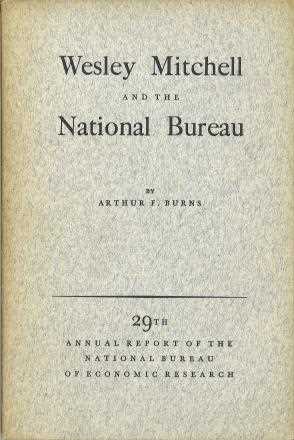National Bureau of Economic Research: NBER Meaning and Role

The National Bureau of Economic Research (NBER) is a non-profit research organization based in the United States that conducts and disseminates economic research. It was founded in 1920 and is headquartered in Cambridge, Massachusetts. The NBER plays a crucial role in shaping economic policy and providing valuable insights into various aspects of the economy.
Meaning of NBER

Role of NBER

The NBER plays a significant role in the field of economics by conducting and publishing high-quality research. Its research covers a wide range of topics, including economic growth, business cycles, labor markets, monetary policy, fiscal policy, and international trade. The organization’s research papers are widely cited and have a significant impact on economic theory and policymaking.
One of the key functions of the NBER is to determine the official start and end dates of recessions in the United States. The NBER Business Cycle Dating Committee, composed of leading economists, analyzes various economic indicators to identify peaks and troughs in economic activity. This information is crucial for policymakers, businesses, and investors to understand the state of the economy and make informed decisions.
The NBER also provides a platform for economists to collaborate and exchange ideas. It organizes conferences, workshops, and seminars where researchers can present their work and receive feedback from their peers. This fosters innovation and advances in economic research.
Furthermore, the NBER publishes a wide range of working papers, books, and journals that disseminate its research findings. These publications are highly regarded in the academic community and provide valuable insights into various economic issues.
In addition to its research activities, the NBER also serves as a resource for policymakers, journalists, and the general public. Its website offers access to a wealth of economic data, reports, and analysis, allowing users to stay informed about the latest economic developments.
The NBER conducts research on a wide range of economic topics, including macroeconomics, labor markets, international trade, finance, and economic development. Its research is conducted by a network of over 1,500 economists from universities and research institutions around the world.
One of the key functions of the NBER is to identify and date business cycles in the United States. It maintains a chronology of business cycles, which helps economists and policymakers understand the patterns and causes of economic fluctuations. The NBER’s Business Cycle Dating Committee is responsible for determining the start and end dates of recessions and expansions in the U.S. economy.
The NBER also publishes a wide range of working papers, which are research papers that have not yet been published in academic journals. These working papers provide valuable insights into current economic issues and often serve as a basis for further research and policy discussions.
In addition to its research activities, the NBER organizes conferences, workshops, and seminars to facilitate the exchange of ideas among economists and policymakers. It also provides data and resources to researchers, policymakers, and the general public through its website.

Emily Bibb simplifies finance through bestselling books and articles, bridging complex concepts for everyday understanding. Engaging audiences via social media, she shares insights for financial success. Active in seminars and philanthropy, Bibb aims to create a more financially informed society, driven by her passion for empowering others.
